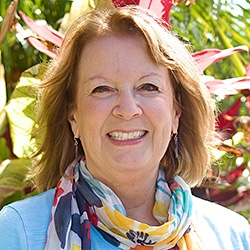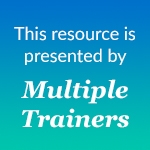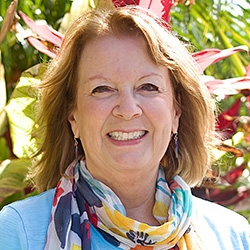Select Media Type, Click Search
Search All
17 Trainers
Administrator
Alan Rafael Seid
Alan Seid, Dian Killian PhD, Jeff Brown, Mary Mackenzie and Roxy Manning
Amanda Blaine
Anna Groves
Anne Walton
Anne Walton and Rodger Sorrow
Anne Walton, Jim Manske, Kristin Master, Rodger Sorrow, Selene Aitken and Sylvia Haskvitz
Arnina Kashtan
Arnina Kashtan and Heather Austin
Arnina Kashtan, Emma Quayle and Miki Kashtan
Arnina Kashtan, Mary Mackenzie & Sarah Peyton
Arnina Kashtan, Mary Mackenzie and Sarah Peyton
Arnina Kashtan, Miki Kashtan and Lisa Rothman
Aurélia Saint-Just, Meneka Neotia and Miki Kashtan
Authentic Communication Group
Aya Caspi
Barbara Larson
Barbara Larson, Deborah Bellamy, Jeff Brown, Kirsten Kristensen, Kristen Masters, Louise Romaine, Mary Mackenzie
Barbara Larson, Deborah Bellamy, Jeff Brown, Kristin Masters, Louise Romain and Mary Mackenzie
Barbara Larson, Deborah Bellamy, Jeff Brown, Kristin Masters, Louise Romain, Mary Mackenzie
Bob Wentworth
Bridget Belgrave
Bridget Belgrave, Jeff Brown, Mary Mackenzie
Camila Reyes Azcuénaga
Catherine Cadden
Catherine Cadden and Jesse Wiens
Catherine Cadden, Duke Duchscherer, Jesse Wiens Chu, Kathleen Macferran and Mary Mackenzie
Catherine Cadden, Jesse Wiens, Mark Schultz, Miki Kashtan
CC and JW
Ceri Buckmaster, Jo McHale and Sarah Ludford
Christine King
Christine King and Jean Morrison
Christine King, Faye Landey, Liv Larsson, Mary Mackenzie and Rita Herzog
Christine King, Faye Landey, Liv Larsson, Rita Herzog, Mary Mackenzie
Christine King, Jean Morrison
Christine King, Jean Morrison, Kelly Bryson
Christine King, Kelly Bryson
CNVC
David Weinstock
Dian Killian
Dian Killian, Gregg Kendrick, Martha Lasley, Mary Mackenzie, Mel Sears, and Wes Taylor
Dian Killian, Gregg Kendrick, Martha Lasley, Mel Sears, Wes Taylor, Mary Mackenzie
Dian Killian, John Kinyon and Mary Mackenzie
Dian Killian, Martha Lasley
Dian Killian, Mary Mackenzie
Duke Duchscherer
Eddie Zacapa
Elena Bernasconi Tabellini and Christiaan Zandt
Elia Lowe-Chardé
Elia Paz
Eric Bowers
Farrah Baut-Carlier, Frank Gaschler, Mary Mackenzie and Roxy Manning
Francois Beausoleil
Francois Beausoleil and Jared Finkelstein
François Beausoleil and Jeff Brown
Francois Beausoleil, Jeff Brown
Gary Baran
Geneviève Roger
Gina Cenciose
Gina Cenciose and Shulamit Day Berlevtov
Gina Cenciose, Shulamit Berlevtov
Giorgos Tsitsirigkos
Gitta Zimmermann
Godfrey Spencer
Greg Rouillard, John Buck and Jerry Koch-Gonzalez
Gregg Kendrick
Gregg Kendrick and Marie Miyashiro
Gregg Kendrick, Marie Miyashiro
Hema Pokharna PhD
Hema Pokharna PhD and Mandakini Pokharna MD
Ike Lasater and John Kinyon
Inbal Kashtan
Inbal Kashtan and Miki Kashtan
Inbal Kashtan and Roxy Manning
Ingrid Bauer
Iris Bawidamann
Irmtraud Kauschat
Itzel Hayward
Itzel Hayward and Kathy Simon
James Prieto
Jared Finkelstein
Jared Finkelstein and Lore Baur
Jean Morrison and Sylvia Haskvitz
Jean Morrison, Kelly Bryson
Jeff Brown
Jeff Brown and Mary Mackenzie
Jeff Brown, Jean Morrison, Kathleen Macferran, Karl Steyaert, Mary Mackenzie, Sylvia Haskvitz
Jesse Wiens Chu
Jeyanthy Siva
Jim & Jori Manske
Jim and Jori Manske, Jared Finkelstein, Rodger Sorrow, Sarah Peyton, Lorraine Aguilar, Shoshona Wheeler, Camila Reyes and Yvette Erasmus
Jim Manske
Jim Manske, Roxy Manning, Dian Killian and Marina Smerling
Jo McHale and Kirstin Heidler
John Cunningham
John Kinyon
John Kinyon and Stephanie Mattei
John Kinyon, Matthew Rich
John Kinyon, Miki Kashtan
John Kinyon, Newt Bailey
John Kinyon, Stephanie Bachmann Mattei
Jorge Rubio
Jori Manske
Karl Steyaert
Kateryna Yasko and Auke Van Nimwegen
Kateryna Yasko, Olena Kashkarova, Pavlo Kozeletskyi and Duke Duchscherer
Kathleen Macferran
Kathleen Macferran and Jared Finkelstein
Kathleen Macferran and Mary Mackenzie
Kathleen Macferran, Mary Mackenzie
Kathy Simon
Kathy Ziola
Katrina Vaillancourt
Kelly Bryson
Kirsten Kristensen
Kit Miller
Kristin Masters
Kristin Masters, Mary Goyer
Leo Sofer
Linda Mia Mukte
Linnaea Marvell
Lisa Rothman
Lisa Rothman and Aya Caspi
Liu Yi
Liv Larsson
Liv Larsson, Miki Kashtan
Liv Monroe
LoraKim Joyner
LoraKim Joyner, DVM
Lore Baur
Lorraine Aguilar
Mair Alight
Mair Alight, NVCA
Marco Matera
Mark Schultz
Marshall Rosenberg
Martha Lasley
Martha Lasley and Pernille Plantener
Mary Mackenzie
Mary Mackenzie and Iris Bawidamann
Mary Mackenzie and Mark Schultz
Mary Mackenzie and Raj Gill
Mary Mackenzie and Roxy Manning
Mary Mackenzie, Kathleen Macferran, Jürgen Licht and Linda Mentner
Mary Mackenzie, Mark Schultz
Mary Mackenzie, Raj Gill
Mary Mackenzie, Roxy Manning
Mary Mackenzie, Susan Skye
Melanie Sears
Melissa .
Mika Maniwa and Leonie Smith
Miki Kashtan
Miki Kashtan and Emma Quayle
Miki Kashtan, Arnina Kashtan and Lisa Rothman
Miki Kashtan, Aurélia Saint-Just and Alper Süzer
Miki Kashtan, Emma Quayle and Eddy Quinn
Miki Kashtan, Inbal Kashtan, Arnina Kashtan, Francois Beausoleil and 16 other trainers!
Mina Mo
Monica Reu & Ian Peatey
Morris H. Ervin, Jr.
Mukti Jarvis
Nadya Mahmud Giol and Roberta Wall
Natural Selection
NVC Academy
NVC Academy Staff
Olga Nguyen
Oren Jay Sofer
Peggy Smith
Penny Wassman
Puddledancer Press
Rachelle Lamb
Raj Gill
Ranjitha Jeurkar
Rita Herzog
Robert Gonzales
Robert Gonzales and Leo Sofer
Robert Gonzales, Kelly Bryson, Sylvia Haskvitz, Jim and Jori Manske, Ingrid Bauer, Francois Beausoleil, Mary Mackenzie, Jesse Wiens, Catherine Cadden, Jeff Brown
Robert Maoz Krzisnik
Roberta Wall
Roberta Wall and Barbara Bash
Roberta Wall, Barbara Bash
Rodger Sorrow
Rodger Sorrow, Mary Mackenzie, Jim and Jori Manske, Sarah Peyton, Jared Finklestein, Lorraine Aguilar and Shoshana Wheeler
Roxy Manning
Roxy Manning and Martha Lasley
Roxy Manning and Miki Kashtan
Roxy Manning, Francois Beausoleil and the NLSJTT
Roxy Manning, Francois Beausoleil and the training team of the annual Nonviolent Leadership for Social Justice Retreat
Roxy Manning, Stephanie Bachmann Mattei, Arnina Kashtan, Liv Larsson, Mary Mackenzie
Sarah Peyton
Selene Aitken
Shakti Butler
Shantigarbha Warren
Simone Anliker
Sophie Docker and Sarri Bater
Stephanie Bachmann Mattei
Susan Skye
Sven Hartenstein
Sylvia Haskvitz
System Administrator
Vaneet Kumar
Victor Lee Lewis
Wes Taylor
Yoram Mosenzon
Yvette Erasmus

















